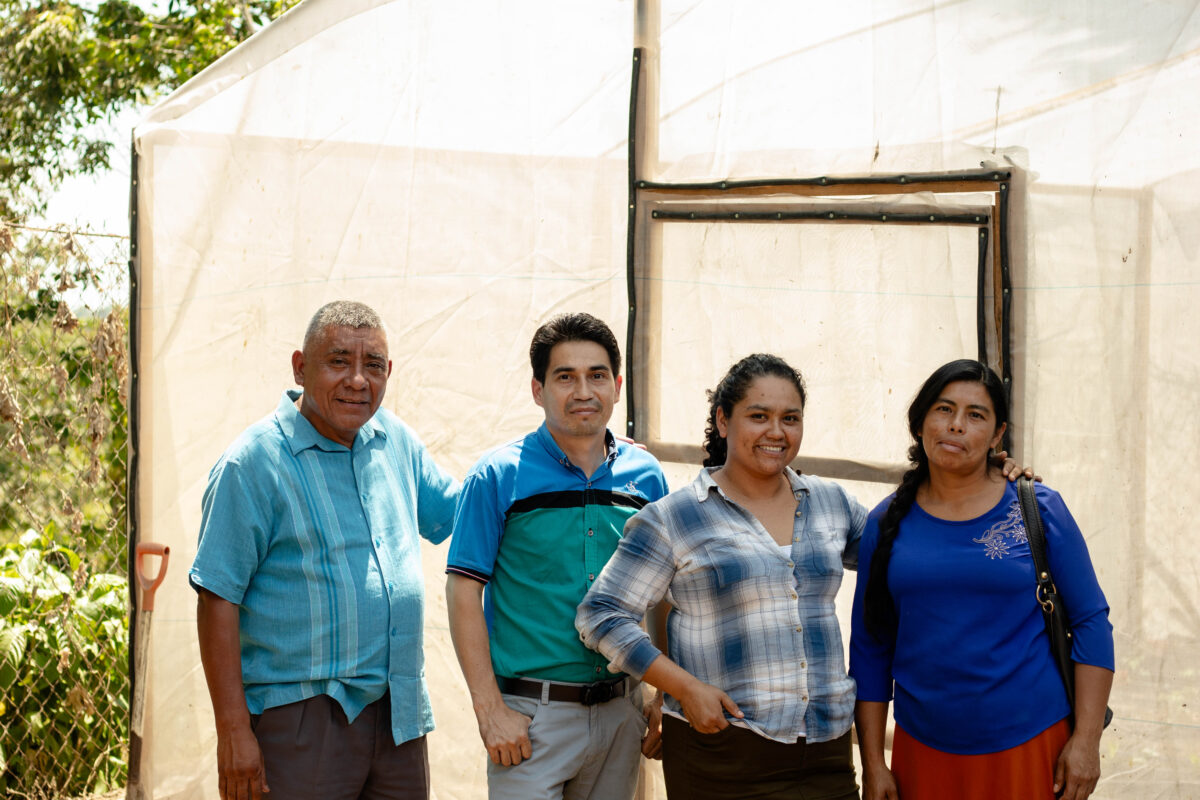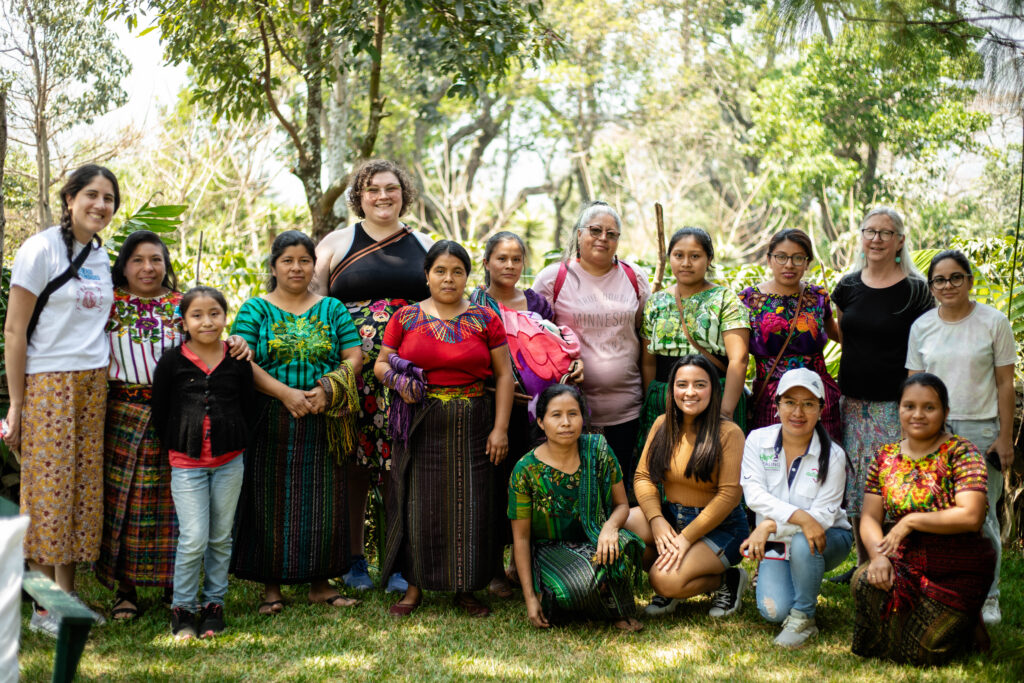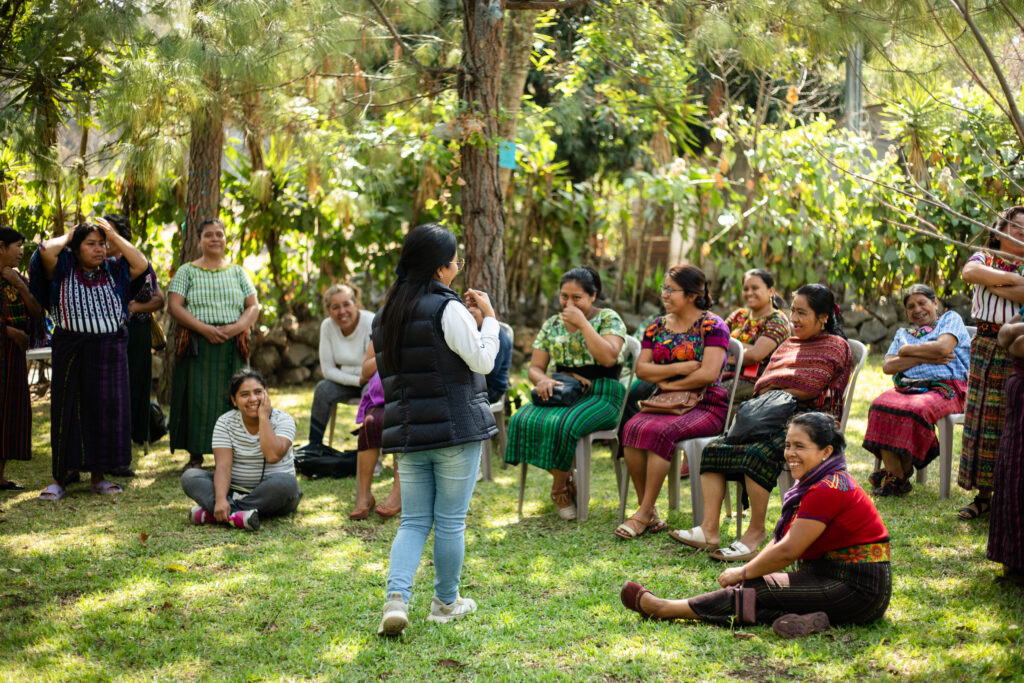
An increasing number of communities, including our ESPERA partners in El Salvador, have turned their attention to organic farming as a sustainable alternative amidst challenges posed by climate change and economic instability. The shift towards organic methods is driven by different factors, including the rising costs and scarcity of chemical fertilizers and pesticides, exacerbated by global conflicts such as the war in Ukraine and inflation.
For years, farmers worldwide have preferred chemical fertilizers and pesticides to help their crops grow faster and stronger, thinking they can make more money faster. This method worked for many years, but two years ago, after the war in Ukraine started, small farmers in Central America found they could no longer afford fertilizers and other chemicals.
In addition to the above, changing weather conditions lead to more frequent crop losses, and communities across Guatemala, Honduras, Nicaragua, and El Salvador recognize climate change’s effects and the importance of sustainable agricultural practices. Women from ESPERA groups have noticed and are worried about how fast the weather patterns are changing, affecting their economic initiatives and lives.
They’ve reported more frequent crop losses, and some only produce enough food for their family consumption but not for selling. Sometimes, the loss is due to drought and heat and sometimes to heavy rain. What’s common in all cases is unusual weather conditions.
When communities realized they could no longer afford chemical fertilizers, returning to natural methods gained popularity. Many women who are part of the ESPERA program are interested in learning more about organic gardening. Currently, three organizations are growing organic gardens.
Based on this reality, CESPPO is one of the organizations that is experimenting with organic farming. Through Concertación de Mujeres (another ESPERA partner), they contacted an agronomy and organic farming expert and started a plan to get women interested. Seven women signed up for the experience, and they started training. They learned how to make natural compost and pesticides that don’t smell and can be safely kept in their backyards, where their kids play daily.
The group also visited organic farms in El Salvador, where they learned that organic farming, even though it is slower and less consistent, in the long run can provide them with more produce for longer. They learned that organically raised chili plants can produce for 13 months, whereas plants that depend on chemical fertilizers produce for only 3-4 months.
After the training, the women built a small organic garden with different vegetables and spices in the backyard of one of the women, where they shared and learned together. They expect their garden to ensure food security and resilience against rising costs and erratic weather patterns. If everything goes well, they expect their first harvest in July. They’re already looking forward to seeking more space to expand the garden.
The transition to more sustainable farming is just one aspect of addressing the complex challenges faced by women in Central America. Economic security, access to healthcare, and mental health support are equally vital components of empowering women in these communities.
The Importance of Emotional Wellness Workshops
Staff from Minnesota traveled to Central America in March to meet with new partner organizations in Guatemala and groups in El Salvador. Brianna, our Development Manager, wrote this piece about her experience.

When we visited Guatemala, one of the experiences that I will never forget was the ADISA emotional wellness workshop. Women from all over the region attended the workshop. The women who participated in this workshop spoke in Tzʼutujil, an indigenous language (one of Guatemala’s 26 indigenous Mayan languages), and were mothers of children with disabilities. The workshop’s theme was self-care, which is especially important for caregivers.
The workshop had stations that included hair care, nail care, healthy eating, relaxation techniques, and safely lifting heavy objects. An opening meditation focused on breath work and a guided reflection on their work to care for themselves. Many women began to cry, reflecting the emotional burdens they carry.
The women also had time to share updates on their lives, and some of them shared that they’re using loans for economic initiatives and saving their earnings. The community that these women built and the camaraderie they had was evident. Some brought their children; other women cared for these children’s needs while their mothers experienced the workshops. The women were vulnerable with one another, sharing their struggles, accomplishments, and hopes for the future.
I was honored to witness this gathering to see in practice the foundational work of mental health and emotional wellness: without tending to our hearts and minds and caring for ourselves, the rest of the work cannot be done. This is true for the group in Guatemala and women across Central America.

Though realities are different in every country, there are similarities. The women all live in areas touched by gang violence and domestic violence, with little access to salaried work, health care, and other resources. The small mental health support groups that have emerged thanks to the ESPERA program have been crucial in addressing the holistic needs of women in Central America, strengthening their economic initiatives, and improving their lives as a whole. By addressing mental health needs alongside economic initiatives, programs like ESPERA contribute to the overall well-being and resilience of women in Central America.
